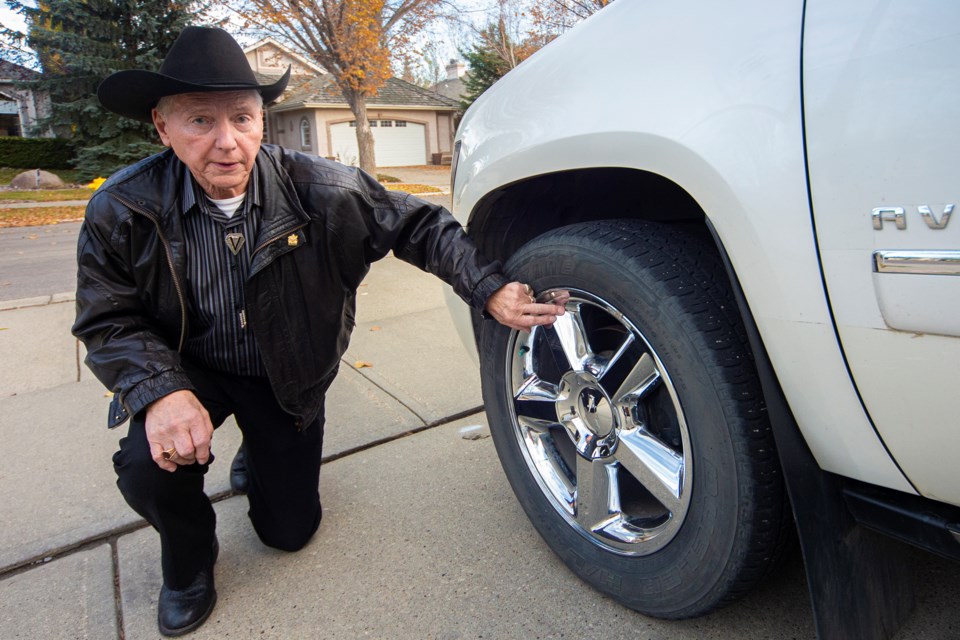St. Albert is suspending its use of calcium chloride on roads this winter as the city studies its environmental impact and collision levels.
The controversial de-icing agent was on Edmonton’s chopping block Oct. 8, when Edmonton city council narrowly voted 7-6 to hit pause on its calcium chloride program on roads, after concerns arose around rusting of vehicles and impact on infrastructure.
St. Albert Public Works senior manager Louise Stewart said Edmonton’s decision had no impact on St. Albert’s course of action, and Edmonton had used calcium chloride much more heavily.
She said St. Albert has been doing a pilot project for the past five years, applying calcium chloride to Ray Gibbon Drive and St. Albert Trail as a preventative liquid de-icer in advance of winter storms. Now, public works will suspend their use of the substance to study the program’s effectiveness.
“We’ve done five years of a pilot and we’re going to now suspend the pilot – and we may pick it up again – but suspend it for the time being to gather some data, just to see if it is effective,” Stewart said.
Calcium chloride is typically applied as a brine to roadways before snow falls, and makes snow and ice clearing easier.
This winter, crews will use a traditional mix of plowing and applying a salt-sand mixture instead.
Stewart said five years was a good time frame to gather data on water quality beside Ray Gibbon Drive as well as collision data. St. Albert will likely suspend use of calcium chloride for the same time frame – about five years – to get comparable data.
“Then we can really compare the data, because our mandate is to always provide (a) safe and reliable transportation network,” Stewart said. “Yes, it’s controversial, but if that product itself actually increased our reliable road network or if it really made no difference. In which case, our traditional means work.”
Mayor Cathy Heron said from a council level, St. Albert will continue to ensure residents have the highest quality of snow removal.
“From a council and a governance level, we will continue to ensure that we have the highest service standard in the region for snow removal,” she said. “Residents expect that.”
Resident Darrell Roth told the Gazette he feels St. Albert should not be using calcium chloride on roadways, and that his two vehicles have seen the effects of the salt.
“It kind of destroys the vehicles, period,” he said. Roth has been a mechanic for 50 years and said the brake calipers on his Honda car seized up and had to be removed and cleaned, which he believes is due to the calcium chloride.
“I’ve never seen that before, never even heard of it before,” he said. Roth added he thinks the city should use sand instead.
Stewart said calcium chloride is a relatively new product that is being used across North America, and it is only now some of the “downsides” are starting to appear.
“The science is still out there; we can get some science that will say, 'No, it’s a fantastic product and nothing is wrong with it.' Then you have the other science that will say, 'No, it's rusting,' and all that,” she said.
The Anthony Henday will still be treated with calcium chloride, so some of the brine could still leach onto the southern portion of Ray Gibbon Drive, Stewart said.



